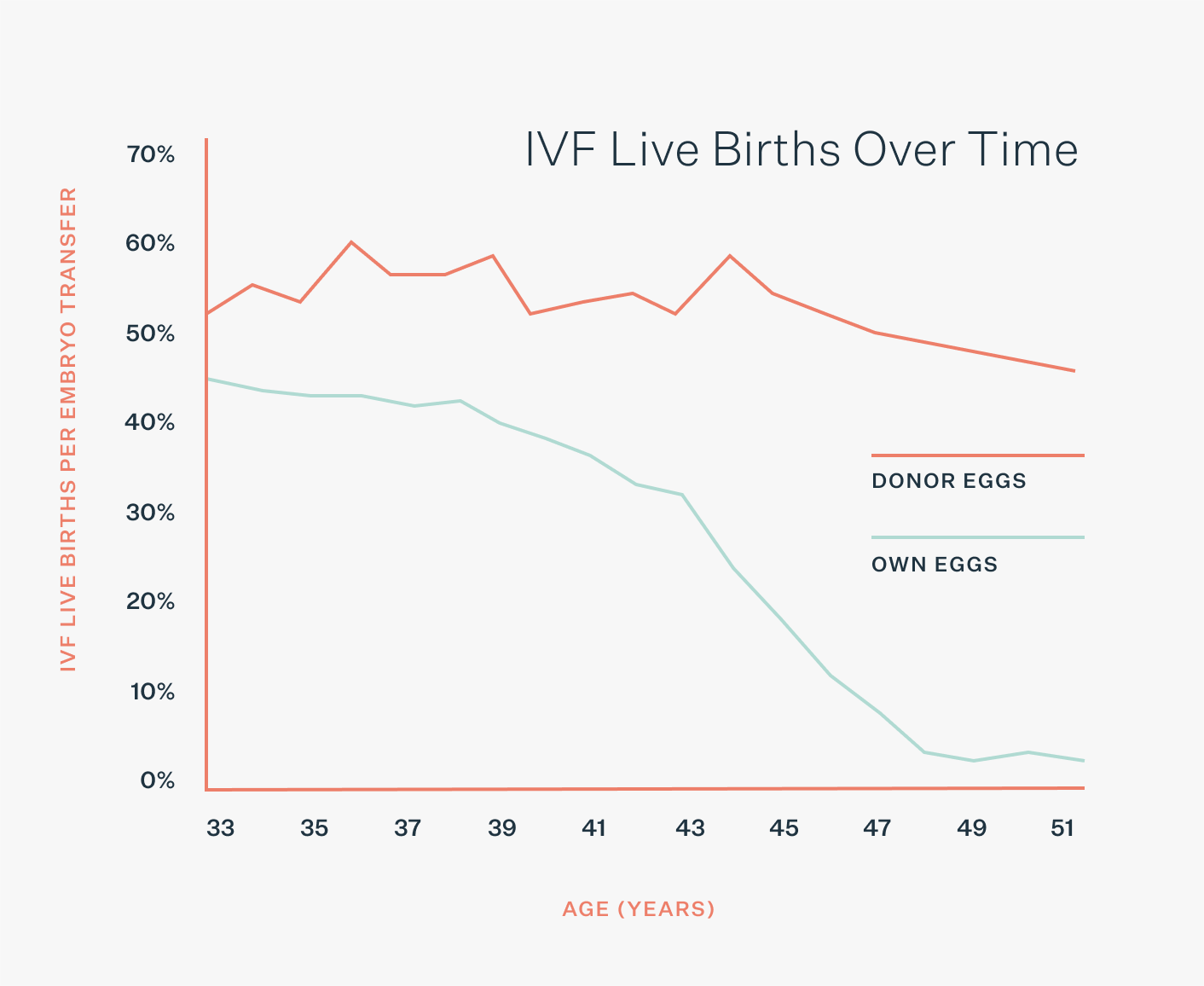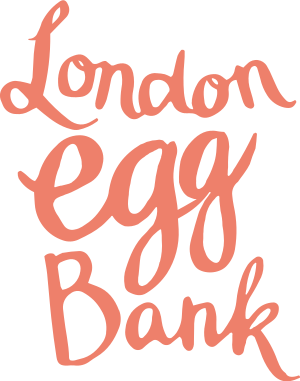Aside from the physical and emotional symptoms that come from shifting hormone levels, the resulting loss of fertility during menopause can bring with it a sense of sadness and grief, especially if you’re still hoping to conceive.
Many women approaching midlife wonder: Can you get pregnant during menopause? With irregular periods and symptoms that overlap with early pregnancy, it’s a valid (and surprisingly common) question. And the answer, it might surprise you to know, is yes – pregnancy is still possible, but only under certain circumstances.
In this blog, we’ll break this down and explain what happens to your fertility during this time, delve into the possibility of pregnancy during menopause and after, the associated risks and the available options for those considering having children later in life.
When does menopause happen?
In a nutshell, menopause is when periods stop for good. It's diagnosed after 12 months without a menstrual period, vaginal bleeding or spotting, and can happen in your 40s or 50s (but the average age is 51 in the UK).
Pregnancy during menopause is not possible without fertility treatment using either frozen or donor eggs. That’s because menopause signals the end of your periods and, therefore, your fertile years.
Many women approaching midlife wonder: Can you get pregnant during menopause? And the answer, it might surprise you to know, is yes – pregnancy is still possible, but only under certain circumstances.
Can you get pregnant during perimenopause?
Menopause doesn’t happen overnight; there’s a transitional phase before it known as perimenopause, during which a woman’s body begins to naturally shift toward the end of her reproductive years.
It typically starts in your 40s, but can begin as early as your mid-30s (reaching menopause aged 40 or younger is classed as early menopause; the average age is 46). Perimenopause usually lasts for around seven years.
During this stage, many women notice their periods becoming unpredictable – heavier, lighter, longer or shorter – and experience feelings or physical problems they haven't had before, such as mood swings, hot flashes and night sweats (although some women don’t experience any significant symptoms).
This is because hormone levels change – significantly oestrogen, which controls the menstrual cycle and contributes to a number of other bodily processes, such as bone health and hair growth and quality. As women age, the ovaries produce fewer eggs, oestrogen levels fluctuate and gradually reduce, which leads to these symptoms.
Is it possible to conceive naturally during perimenopause, then? Yes, it is. Even if you’re experiencing strong menopause symptoms, it doesn’t mean you can’t get pregnant – not until your periods stop altogether. In fact, 75% of pregnancies in women over 40 are unplanned and contraception is therefore essential until menopause is confirmed.
That said, achieving a pregnancy is often much harder, as you will have fewer eggs and poorer egg quality, making it less likely that a released egg will be successfully fertilised or implanted into the womb. By age 40, the chance of getting pregnant naturally each month drops to just 5%.
Menopause doesn’t happen overnight; there’s a transitional phase before it known as perimenopause, during which a woman's body begins to naturally shift toward the end of her reproductive years.
Am I experiencing pregnancy symptoms or menopause symptoms?
It can be more difficult to pick up on early signs of pregnancy if you are going through perimenopause, as you may not not have regular periods.
You may also be wondering: will you still ovulate in perimenopause? Yes, you will, but there may be cycles where an egg is not released and, therefore, ovulation is harder to track.
Menopause symptoms mimic pregnancy in many women, so you might want to consider taking a pregnancy test if you notice any changes to your bleeding pattern, or abdominal pain or swelling.
There are also symptoms unique to pregnancy, such as sensitive and swollen breasts, nausea with or without vomiting, constipation and food sensitivity/cravings. Home pregnancy tests work just as well during menopause as they do at any other time.
Can you have a successful pregnancy during perimenopause?
You can absolutely have a healthy pregnancy, but pregnancy in perimenopause is not without its complications.
Due to advanced maternal age, these can include problems during pregnancy, such as high blood pressure and diabetes, and risks during the birth, like haemorrhage and abnormal positioning of the placenta. Ectopic pregnancy and miscarriage are also more common as you age.
It’s therefore important to ensure that you are supported with the appropriate medical care due to the increased risk of complications.
Understanding infertility: when to seek help
If you are unable to fall pregnant naturally, and are instead considering using your own frozen eggs or donor eggs, there is a much higher likelihood of a successful pregnancy. That’s because your age when you get pregnant is not as important as the age of the eggs with which you get pregnant.
Using eggs from younger women (usually aged between 18 and 35) means that egg quality is often higher, the risk of chromosomal abnormalities lower and there’s an increased likelihood of normal embryo development.
While own‑egg IVF is very effective for women under 35 (30-35 per cent live‑birth per transfer), as mentioned it drops to less than 5 per cent by a woman’s mid‑40s. Donor‑egg IVF, on the other hand, offers a 30-35 per cent live‑birth chance per transfer at any recipient age, with cumulative pregnancy rates reaching 75–95 per cent over several cycles (read about our success rates at London Egg Bank here).
If you believe age is a factor for you – you may have tried and failed to become pregnant naturally, or gone through multiple unsuccessful IVF attempts – donor eggs may be an option that you would like to consider to make your parenthood dreams a reality.

Pregnancy during menopause: Final word
Though it’s possible to become pregnant during perimenopause (albeit with a reduced chance), it is not possible during menopause – which is defined as going at least 12 months without having a period (meaning you have also gone 12 months without ovulating). You will only be able to conceive post-menopause with the help of IVF, using either your own frozen eggs or donor eggs.
If pregnancy hasn’t happened for you naturally, or with the help of IVF using your own eggs, donor egg treatment may be worth considering, although you should take your time to understand the process, deal with your emotions and process your fertility grief through professional counselling before doing so.
Wondering if motherhood is still possible after menopause? You're not alone. Read how women like Jane found hope, healing, and family through donor egg treatment.
At London Egg Bank, we're here to support you throughout your journey. Read more about our expertise, technology and success rates, and the personalised care we offer.
